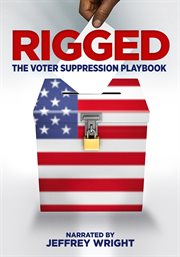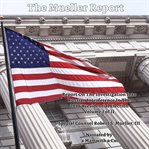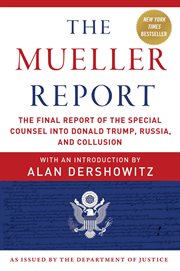Introduction Democracy Under Siege President Barack Obama faced a momentous choice. By the summer of 2016, he knew that Russia was interfering in America's upcoming election. He also knew that Vladimir Putin, the Russian president, was directing this operation. Obama now had to decide whether to retaliate against Putin before or after Election Day. That summer, Celeste Wallander, the top Russia expert inside the White House, submitted to her superiors a classified memorandum outlining ways to punish Putin immediately, in order to deter further interference in the election. "We wanted to do light deniable countermeasures early, in July," said Victoria Nuland, an assistant secretary of state who collaborated closely with Wallander. "All of my Soviet and Russia training told me we had to deter with a strong set of measures up front and have them calculate the costs of continuing to attack us, particularly with a player like Putin."Nuland, Wallander, and other officials proposed a range of options: sanctioning Russia, leaking damaging information about Putin, even suffocating Russia's economy. James R. Clapper, then the director of national intelligence, recalled considering "all kinds of nasty things we could have done to the Russians," such as "cutting them off from the international financial system." But, Clapper continued, the risks were too high: "What would the retaliation have been?" The answer was unknown. Russian intelligence had already stolen and released emails damaging to the Democratic Party, in an effort to influence voters' minds. But Russian hackers had also breached electoral systems, which Washington could not systematically defend. States and localities, not the federal government, purchase and manage America's electoral infrastructure. In some states, voter registration databases were unencrypted and insecure. "[Russia] could have done things as far as voter registration rolls; they could have done things as far as tallies," said John Brennan, then the director of the Central Intelligence Agency (CIA). Jeh Johnson, the secretary of homeland security, worried that Russia "could screw around with voter registration lists to a sufficient degree" to alter the outcome of the election, by making Democrats in swing states like Florida unable to cast their ballots on Election Day. Retaliating against Putin could provoke him into disrupting the voting process itself. With Hillary Clinton favored to win the presidency, and with Donald Trump alleging that the election would be rigged, Obama delayed punishing Russia. Restraint seemed prudent. Instead, at a summit in China in early September, he warned Putin, "You fuck with us and we'll take you down," as one of his senior advisers put it. Of this encounter, Lisa Monaco, Obama's homeland security adviser, said, "We delivered the message to Putin and others in response to what we were seeing in the state systems. That was our focus." By October, Russia was still targeting America's electoral infrastructure. Obama's team considered efforts to manipulate these systems "a redline of sorts," said Avril Haines, the deputy national security adviser, and formulated "a series of very significant responses in the event that the Russians engaged in vote tampering." On Election Day, parts of the federal government secretly braced for such an assault. "We did, in fact, have an entire crisis team set up in the White House," said Michael Daniel, Obama's cybersecurity coordinator. "There were teams at all of the respective agencies," he continued, monitoring for a Russian cyberattack. The worst-case scenario did not arrive: Voting unfolded without interruption. But Russia's operation had by no means failed. Hacked emails had already dominated the news cycle for months, and Russian propaganda had reached tens of millions of Americans on social media. Obama had prioritized protecting the ballot box from direct manipulation, but at a cost: Russia had brazenly manipulated voters' minds. Victoria Nuland lamented the White House's redline mentality. "That is what they were focused on," she said, regarding the threat of vote alterations. "They were not focused at all on what we knew had been very effective elsewhere: the influence campaign, changing public opinion." Obama, near the end of his presidency, retaliated against Russia with economic and diplomatic countermeasures. Too little, too late, many of his advisers now say. "We did not do enough, at an early enough point in our tenure," said Jon Finer, then the State Department chief of staff. "I would have done more sanctions sooner." The then deputy secretary of state Tony Blinken said that, as he has learned more about Russia's operation, he has asked himself: "Did we do enough in terms of punishment? And I think clearly, we didn't." Even James Clapper said it was a mistake to impose costs on Russia only in December: "I would have preferred that been done before the election." (President Obama, through a representative, declined to be interviewed for this book.) By waiting to retaliate, Obama effectively permitted a degree of foreign interference in an American election to avoid making an already-bad situation worse. A previous generation of U.S. policy makers--who themselves interfered in many elections overseas-- would have found such a scenario unimaginable: the United States, the world's most powerful democracy, unable to secure its own elections. But Obama was operating in a new world, a digital one, that had left America vulnerable. The story of Russia's attack on the 2016 election is, in part, a story of difficult choices, made inside the Situation Room based on imperfect information and incomplete intelligence. In this environment, Obama had settled for a policy of managed interference, working to contain but not stop Russia's operation. Rather than impose costs on Putin in real time, he had focused on preventing one form of electoral interference--changing actual votes--while neglecting another: changing minds. In these critical months, Obama had tried but failed to preserve America's sovereignty. The theorist Hans Morgenthau described sovereignty as the "impenetrability" of the nation; others have argued that sovereignty means being "free from all foreign authority" and is "violated when external actors influence or determine domestic authority structures." Covert electoral interference targets a democracy's process of succession and therefore targets the electoral sovereignty of that democracy. When such activity is discovered, the benefiting candidate is plagued with electoral insecurity, or a fear that citizens will consider him illegitimate and indebted to a foreign actor. Can a democracy maintain its electoral sovereignty in the twenty-first century? Obama's intelligence chiefs are skeptical. "It would have been impossible, given the nature of this world, for the Obama administration to do something that would have led to a complete cessation of Russian efforts," John Brennan insisted. "It's not the way the world works. It's not the way the Russians work."Other officials disagree. "Bullshit. That's just bullshit," said one of Obama's senior advisers, who requested anonymity to speak freely, when presented with Brennan's argument. "There were things we could have done to protect U.S. national security that [Obama] chose not to do." Since 2016, Russia's operation has received ceaseless attention, but much of it remains misunderstood. Basic questions have been left unanswered: What is covert electoral interference? For how long have states executed such operations? When did America's elections become so exposed? Just how exposed is America? And, in the digital age, what can democracies do to defend themselves? This book seeks to answer these questions by analyzing not just interference in America's 2016 election but also what came before. Politicians, policy makers, and commentators today often act as though Putin were the first leader to manipulate a foreign election. In this vacuum, covert electoral interference is Russian interference in the 2016 election, in favor of Donald Trump. This ignorance is dangerous. To understand what Russia achieved in 2016, and to prepare for what's ahead, this book looks beyond the daily news cycle. After Trump won, high-profile investigations into his campaign distracted from the issue that spawned them: a massive foreign operation to undermine a presidential election. Back in the summer of 2016, Avril Haines and other senior Obama administration officials sought a more complete picture. They requested a report on Moscow's previous attempts to covertly influence U.S. elections. The briefing they then received, presumably from the U.S. intelligence community, remains classified. This book can be understood as the unclassified and expanded version. Traveling across six countries, I spoke with foreign heads of state and intelligence chiefs, eight former CIA directors and many more CIA officers, twenty-six former advisers to President Obama and eleven former advisers to President Trump, and a host of leading journalists and technology experts. I also learned from the work of historians and other scholars, and I analyzed hundreds of pages of KGB and Stasi archives, many thousands of pages of declassified CIA files, and as many government reports, official testimonies, and meeting transcripts as I could get my hands on. My aims are twofold: to examine a century's worth of covert electoral interference, and to analyze Putin's 2016 operation as the evolution of a practice rather than its creation. For democracies today, the stakes of grappling with this hidden and revelatory history could hardly be higher. The twin processes of globalization and digital connectivity have empowered hostile actors to manipulate democracies everywhere. The evolving threat of covert electoral interference is a symptom of a still more momentous challenge: the exposure of democracies in the age of the internet. "[Russia] is taking advantage of our free and open societies in using these capabilities," said H. R. McMaster, Trump's former national security adviser. "It's important for us to develop better means of defending ourselves against this kind of sustained, really sustained campaign of political subversion." If democracies do not meet this challenge, foreign actors--for now Russia, but soon others--will erode them from within. Excerpted from Rigged: America, Russia, and One Hundred Years of Covert Electoral Interference by David Shimer All rights reserved by the original copyright owners. Excerpts are provided for display purposes only and may not be reproduced, reprinted or distributed without the written permission of the publisher.



